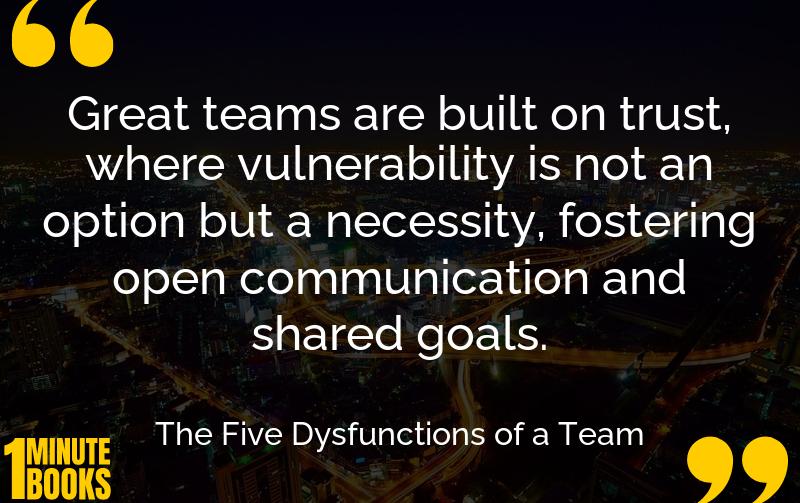
The Five Dysfunctions of a Team explores the inherent challenges of teamwork, emphasizing trust, conflict, commitment, accountability, and results. The book offers practical tools to overcome these dysfunctions.
Main Lessons
- Teams are naturally dysfunctional, requiring deliberate effort to function well.
- Trust is the cornerstone of teamwork, necessitating vulnerability and openness.
- Constructive conflict enhances decision-making by embracing diverse perspectives.
- Commitment to decisions is vital, even without unanimous consensus.
- Peer-to-peer accountability maintains high performance standards.
- Focus on collective goals ensures team success over individual achievements.
- Regular team meetings foster trust, coordination, and efficiency.
- Leaders must exemplify vulnerability to encourage trust-building.
- Setting clear, measurable goals aligns team efforts and commitment.
- Open communication helps address issues and improves decision quality.
- Personal relationships are strengthened through mutual accountability.
- In the absence of trust, teams avoid conflicts, leading to poor outcomes.
- Time spent together enables better rapport and saves time eventually.
- Role modeling by leaders is crucial in establishing a culture of trust.
- Emphasizing teamwork over politics improves morale and performance.








